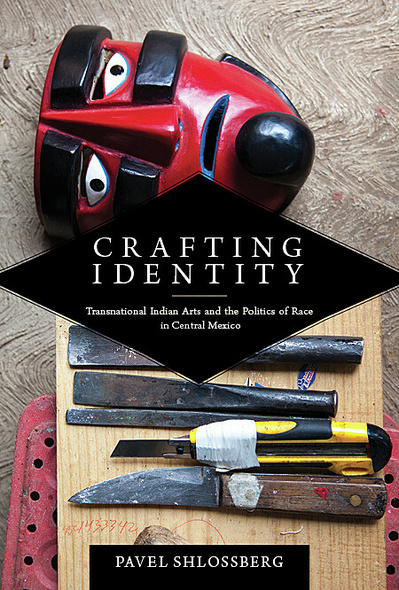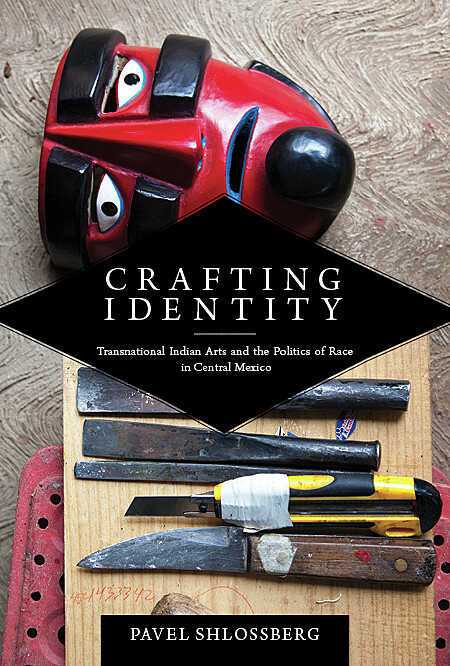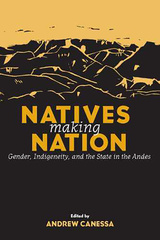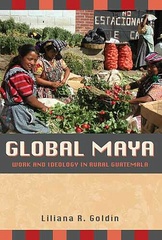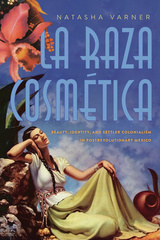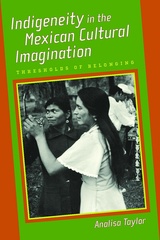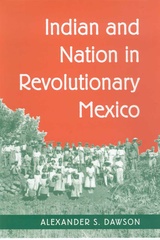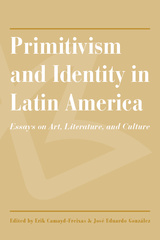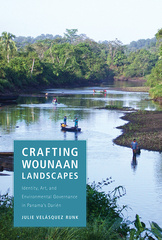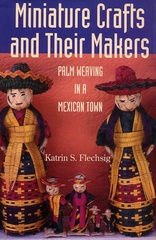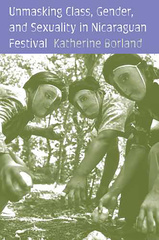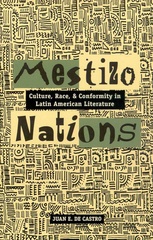Crafting Identity
Transnational Indian Arts and the Politics of Race in Central Mexico
SERIES:
The University of Arizona Press
Crafting Identity goes far beyond folklore in its ethnographic exploration of mask making in central Mexico. In addition to examining larger theoretical issues about indigenous and mestizo identity and cultural citizenship as represented through masks and festivals, the book also examines how dominant institutions of cultural production (art, media, and tourism) mediate Mexican “arte popular,” which makes Mexican indigeneity “digestible” from the standpoint of elite and popular Mexican nationalism and American and global markets for folklore.
The first ethnographic study of its kind, the book examines how indigenous and mestizo mask makers, both popular and elite, view and contest relations of power and inequality through their craft. Using data from his interviews with mask makers, collectors, museum curators, editors, and others, Pavel Shlossberg places the artisans within the larger context of their relationships with the nation-state and Mexican elites, as well as with the production cultures that inform international arts and crafts markets. In exploring the connection of mask making to capitalism, the book examines the symbolic and material pressures brought to bear on Mexican artisans to embody and enact self-racializing stereotypes and the performance of stigmatized indigenous identities.
Shlossberg’s weaving of ethnographic data and cultural theory demystifies the way mask makers ascribe meaning to their practices and illuminates how these practices are influenced by state and cultural institutions. Demonstrating how the practice of mask making negotiates ethnoracial identity with regard to the Mexican state and the United States, Shlossberg shows how it derives meaning, value, and economic worth in the eyes of the state and cultural institutions that mediate between the mask maker and the market.
The first ethnographic study of its kind, the book examines how indigenous and mestizo mask makers, both popular and elite, view and contest relations of power and inequality through their craft. Using data from his interviews with mask makers, collectors, museum curators, editors, and others, Pavel Shlossberg places the artisans within the larger context of their relationships with the nation-state and Mexican elites, as well as with the production cultures that inform international arts and crafts markets. In exploring the connection of mask making to capitalism, the book examines the symbolic and material pressures brought to bear on Mexican artisans to embody and enact self-racializing stereotypes and the performance of stigmatized indigenous identities.
Shlossberg’s weaving of ethnographic data and cultural theory demystifies the way mask makers ascribe meaning to their practices and illuminates how these practices are influenced by state and cultural institutions. Demonstrating how the practice of mask making negotiates ethnoracial identity with regard to the Mexican state and the United States, Shlossberg shows how it derives meaning, value, and economic worth in the eyes of the state and cultural institutions that mediate between the mask maker and the market.
This is a very special, innovative, solid, useful piece of scholarship. It has the potential to be pathbreaking in its field and beyond, particularly because of its narrative style, engaged critical approach, and nuanced and thoroughly researched ethnography. When I read it, I felt very inspired by it.’—Carmen Martínez Novo, author of Who Defines Indigenous?: Identities, Development, Intellectuals, and the State in Northern Mexico
One of the advantages of ethnography is that it delivers complex ideas, often heavily theoretical, through highly readable narratives. Shlossberg does precisely this, which means that his work can be taught easily. This is one of the best examples of what sociologist Anthony Giddens calls ‘structuration theory,’ which proposes that actions are embedded in social structures and simultaneously evidence of social agency.’—Hector Amaya, author of Citizenship Excess: Latino/as, Media, and the Nation
‘Crafting Identity is an important book precisely because it presents a hard, if controversial, look at how institutional structures create and maintain distinctions about what is 'art,' what is 'craft,' who is worthy of attention and who is not—which has real material consequences for the people whose 'culture' is there to be collected, displayed and sold. Museum professionals and budding material culture scholars may be unnerved by the criticisms presented here, but it is a necessary conversation.’—Museum Anthropology Review
Pavel Shlossberg is an assistant professor in the master’s program in communication and leadership studies at Gonzaga University. His research interests include cultural studies of Latin America, cultural citizenship, cultural production, ethnic and racial identity, transnationalism, and media and reception studies.
Acknowledgments
Prologue
Introduction. Race, Class, Crafts, Nation: Cultural Citizenship, Cultural Production, and History in Lake Pátzcuaro
1. Judgment Days I: Indian Tales at the Concurso Artesanal in Uruapan
2. Judgments Days II: Pastorela Tales in Tócuaro
3. Indian Arts and Exile
4. Indian Arts in the Double Voice and Petty Commerce
5. Indian Arts, Connoisseurs, and Collectors
6. Indian Arts, Scholars, and Museums
Studying Up, Down, and Sideways: Conclusions and Departures
Coda. Between Dreams and Nightmares of “the Other”: Rural Michoacán in the Summer of 2013
Appendix. Chronological Bibliography: Books and Exhibition Cata logs about Contemporary Mexican Masks
Notes
Bibliography
Index

